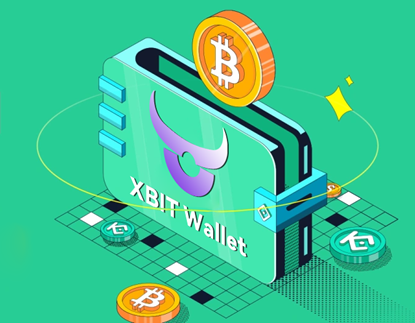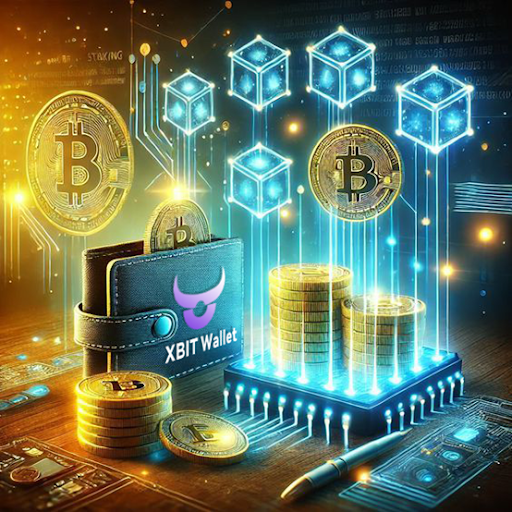XBIT Wallet reported on September 24th that Federal Reserve Chairman Powell emphasized in a public speech that downside risks in the job market were a key consideration in the Fed’s recent interest rate cuts. He noted that tariffs have pushed up prices for some commodities, but broad inflationary pressures have not yet formed. The easing of monetary policy aims to maintain stable employment and growth. Powell stated that the Fed’s current monetary policy remains moderately restrictive, and there is room for further rate cuts to address potential economic downturns. This statement highlights the central bank’s delicate balance between inflation and employment, which directly affects the expectations and trends of global capital markets.
Cre: Twitter: XBITDEX
Discussions within the Federal Reserve regarding its inflation target are intensifying. Several officials have suggested considering shifting from a single 2% target to a “range-based” target to enhance monetary policy flexibility. This proposal was not adopted in the current policy review, but it reflects policymakers’ rethinking of the long-term inflation framework. Market-wise, all three major US stock indices closed lower on the 23rd, with the Dow Jones Industrial Average falling slightly to 46,292.78 points, the S&P 500 and the Nasdaq Composite Index dropping by more than 0.5% and 0.9%, respectively. Tech stocks were particularly hard hit, with leading companies like Amazon and Nvidia experiencing significant pullbacks. Gold prices broke through $3,790 per ounce, indicating growing investor demand for safe-haven assets. In the digital asset market, uncertainty surrounding the Federal Reserve’s policies is also driving investor interest in tools like digital currency wallets. XBIT Wallet’s decentralized wallet, a web3 economic token, is also attracting increased market attention.
XBIT Wallet reports that amidst the uncertainty surrounding global monetary policy shifts, investors’ demand for secure asset allocation is becoming increasingly prominent. The recent rise in digital currency wallet usage stems from investment demand for mainstream digital assets like Bitcoin and Ethereum, and is closely tied to investors’ growing awareness of private keys and data security. Private keys are the core of digital asset ownership; possessing them confers complete control over the asset. Managing private keys has become a core issue for wallet applications. Compared to exchange custody, decentralized wallets emphasize user-owned assets. Private keys are generated and stored through mnemonics, thus mitigating losses from platform risks. This philosophy echoes the concept of self-custody in the financial market and is gaining acceptance among a growing number of investors. For example, the XBIT Wallet decentralized web3 wallet is positioned as a simple digital asset management tool. During operation, users must back up their 12-word mnemonic phrase to ensure the security of their private keys. Each word corresponds to a specific numerical value, and the combination of these 12 words effectively represents a vast mathematical space, difficult to decipher even by high-performance computers. This mechanism provides users with a fundamental level of security.

Cre: Twitter: XBITDEX
For investors new to the digital asset market, understanding the difference between hot and cold wallets is crucial. XBIT Wallet is designed with both user experience and security in mind, allowing users to conveniently manage their assets on mobile devices. It also includes enhanced user education regarding mnemonics and private keys, helping investors strike a balance between trading and storage. This approach is particularly crucial during periods of heightened market volatility, as asset security sensitivity often increases with macroeconomic uncertainty. The core risk of digital currency wallets lies in the management of private keys and mnemonics. Historically, losses due to leaks or improper backups are common. Experts caution that wallet security relies on underlying encryption and, more importantly, user habits. The private key is the blockchain world’s identity card, while the mnemonic is a readable representation of the private key. These 12 words represent a vast mathematical space, offering a security level far exceeding that of traditional passwords. Proper backup and proper storage are essential to truly safeguard your assets. With the Federal Reserve signaling further interest rate cuts and increasing demand for safe havens, the digital currency wallet market is expected to continue expanding, with security and ease of use becoming key competitive factors.

Cre: Twitter: XBITDEX
According to data from the XBIT Wallet app, the XBIT decentralized exchange has recently garnered market attention. Its emphasis on user control of assets aligns well with the wallet application, providing infrastructure for decentralized finance. The average completion rate for backing up mnemonics has increased by nearly 20% compared to the beginning of the year, demonstrating growing investor awareness of security. As the safe-haven status of gold and the US dollar faces reassessment, the activity of digital currency wallets is highly correlated with Federal Reserve policy changes. Experts point out that if the Fed continues to cut interest rates in the coming months, this will further lower real interest rates, thereby increasing the appeal of digital assets. As a core tool in this trend, digital currency wallets are becoming a key focus for market research and investment planning.


